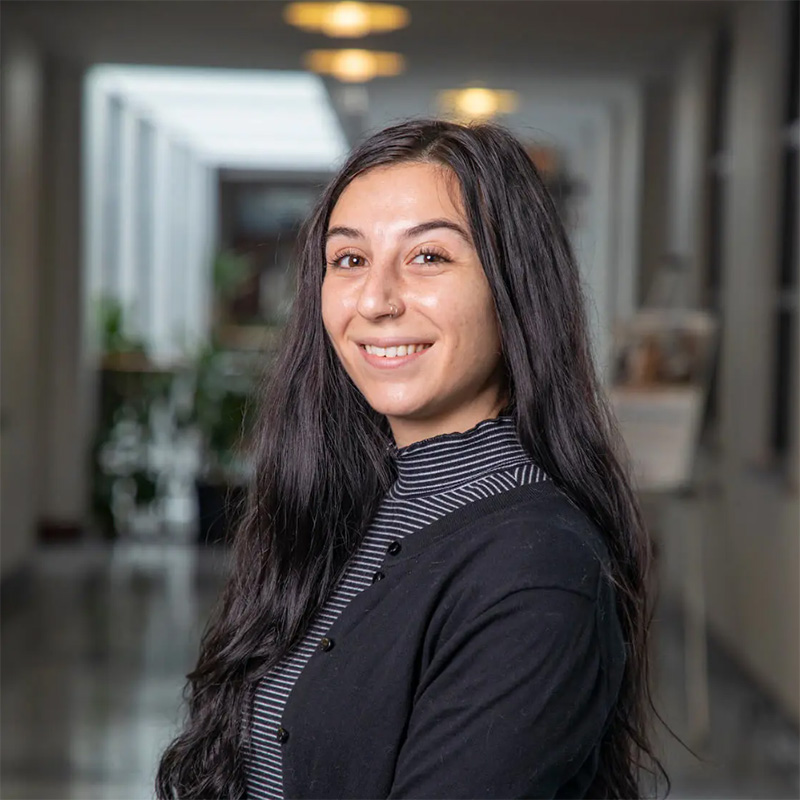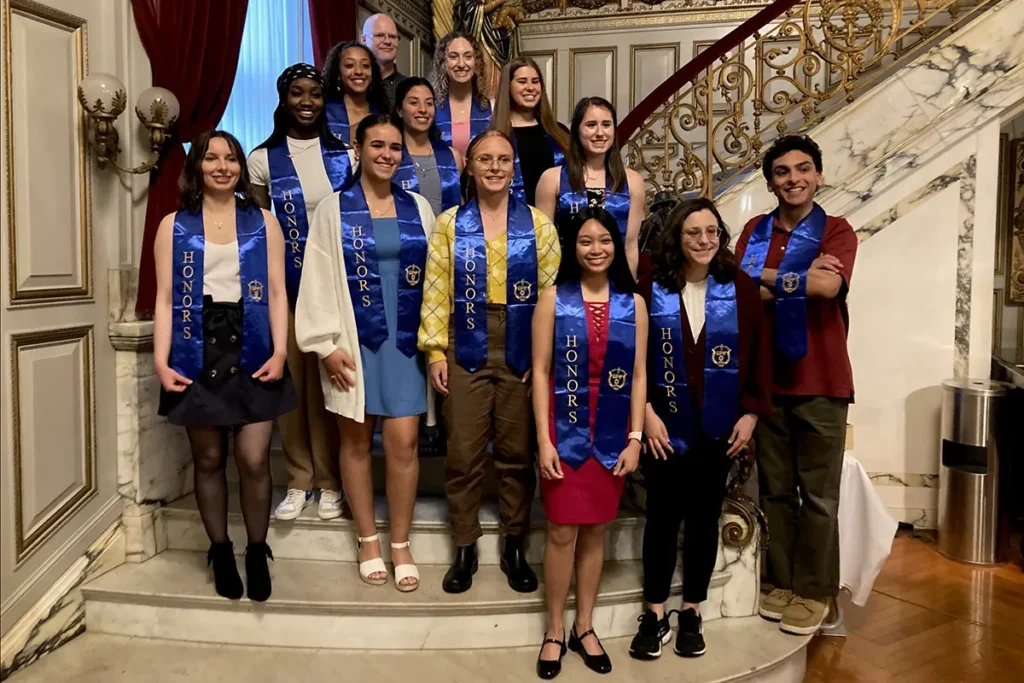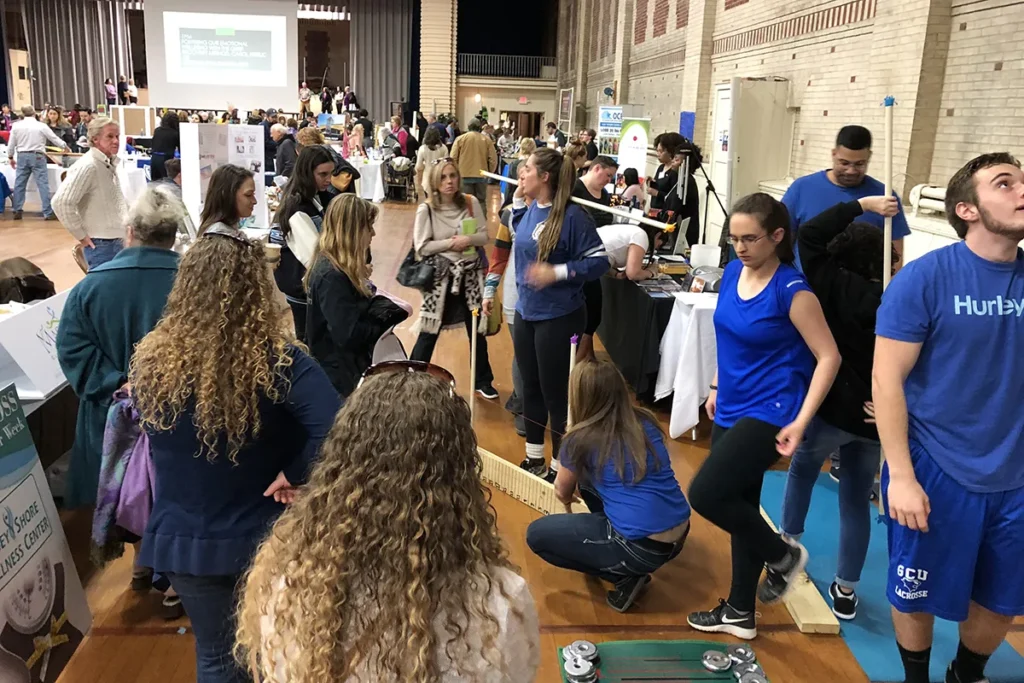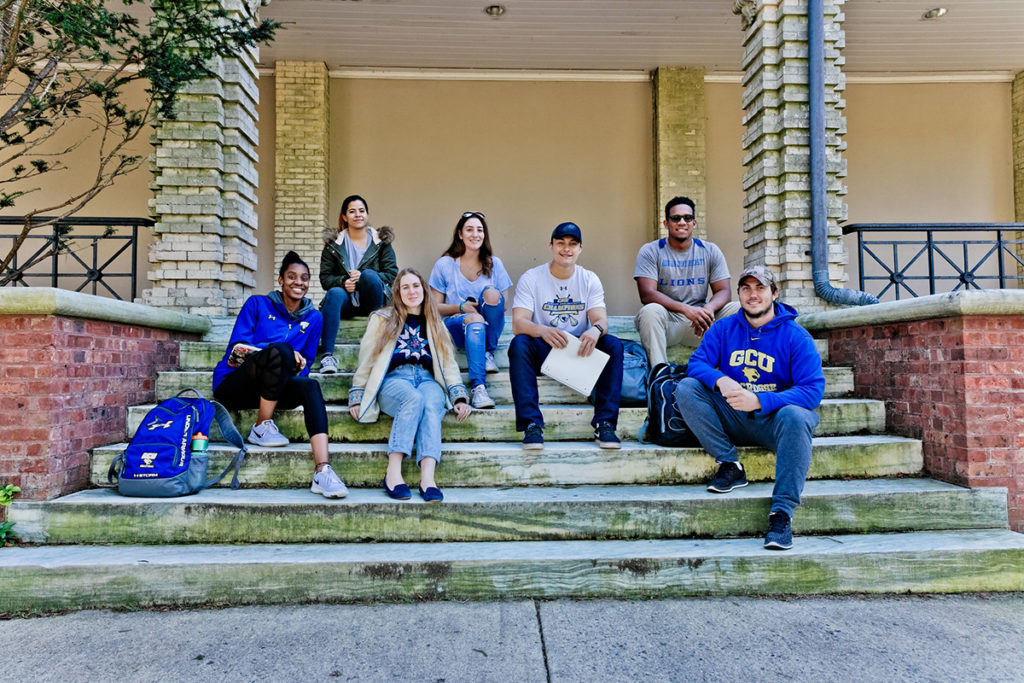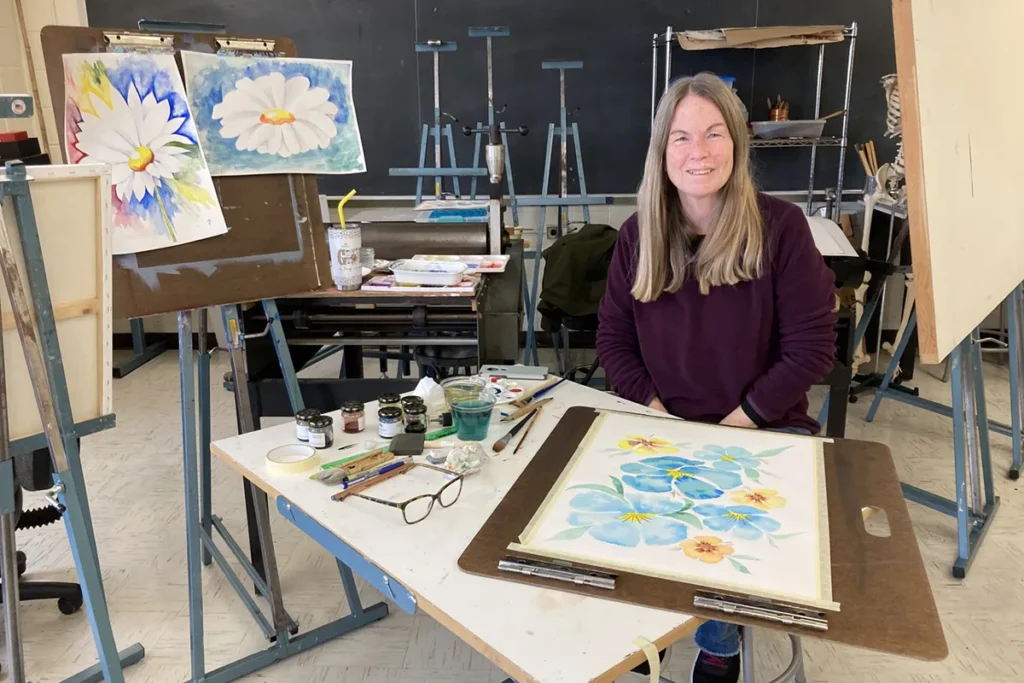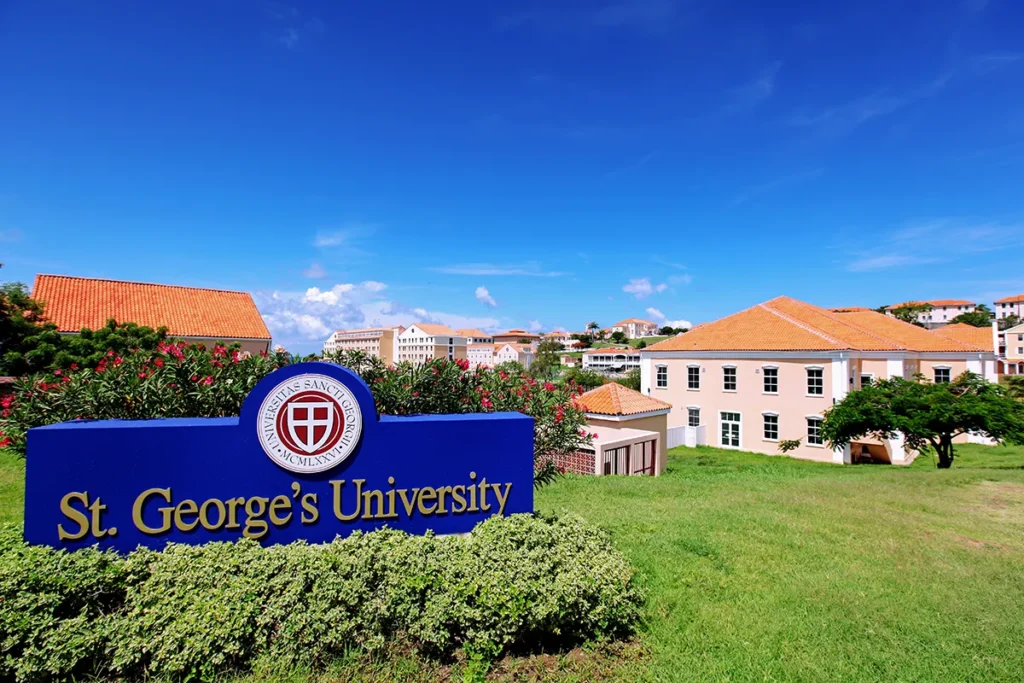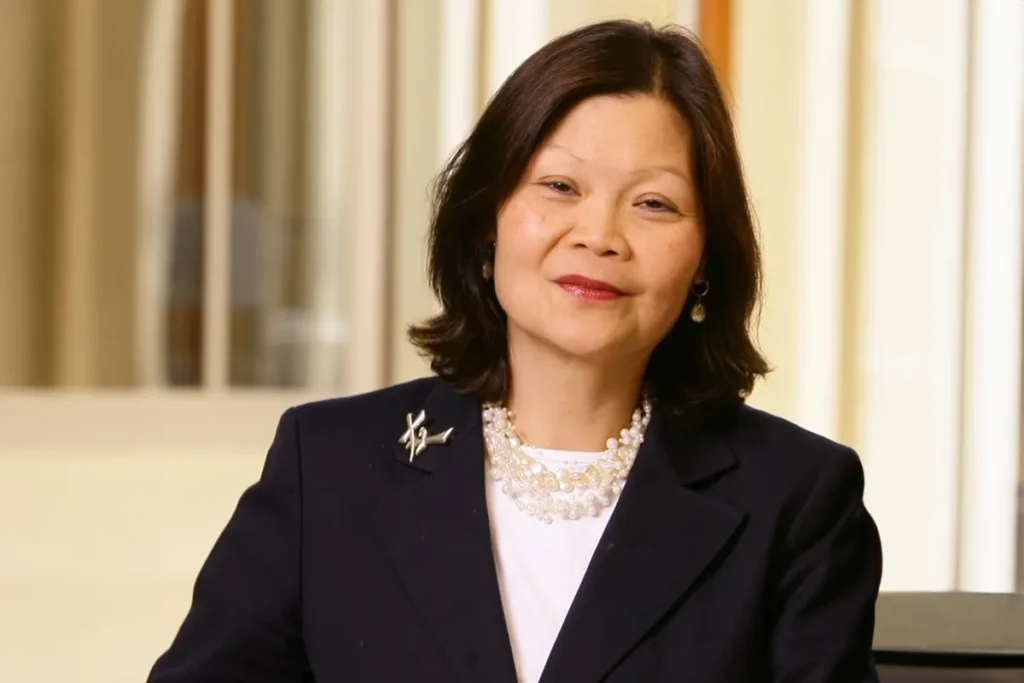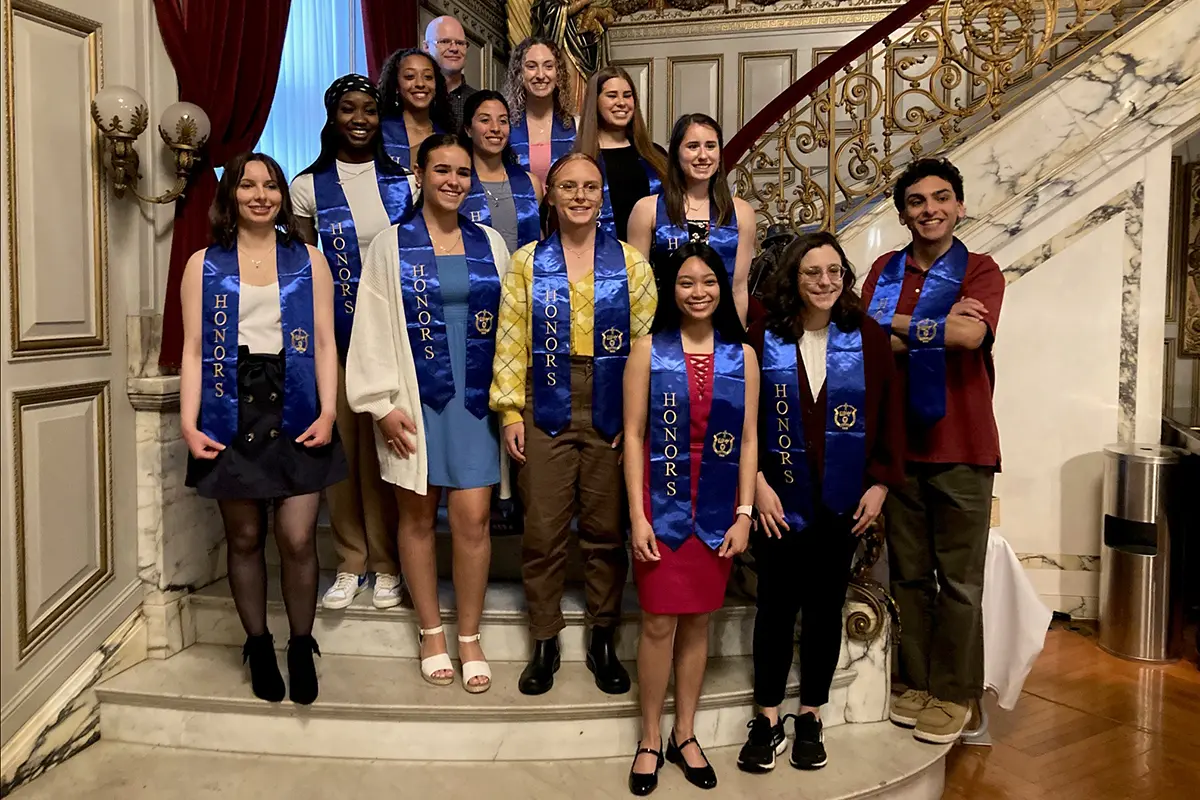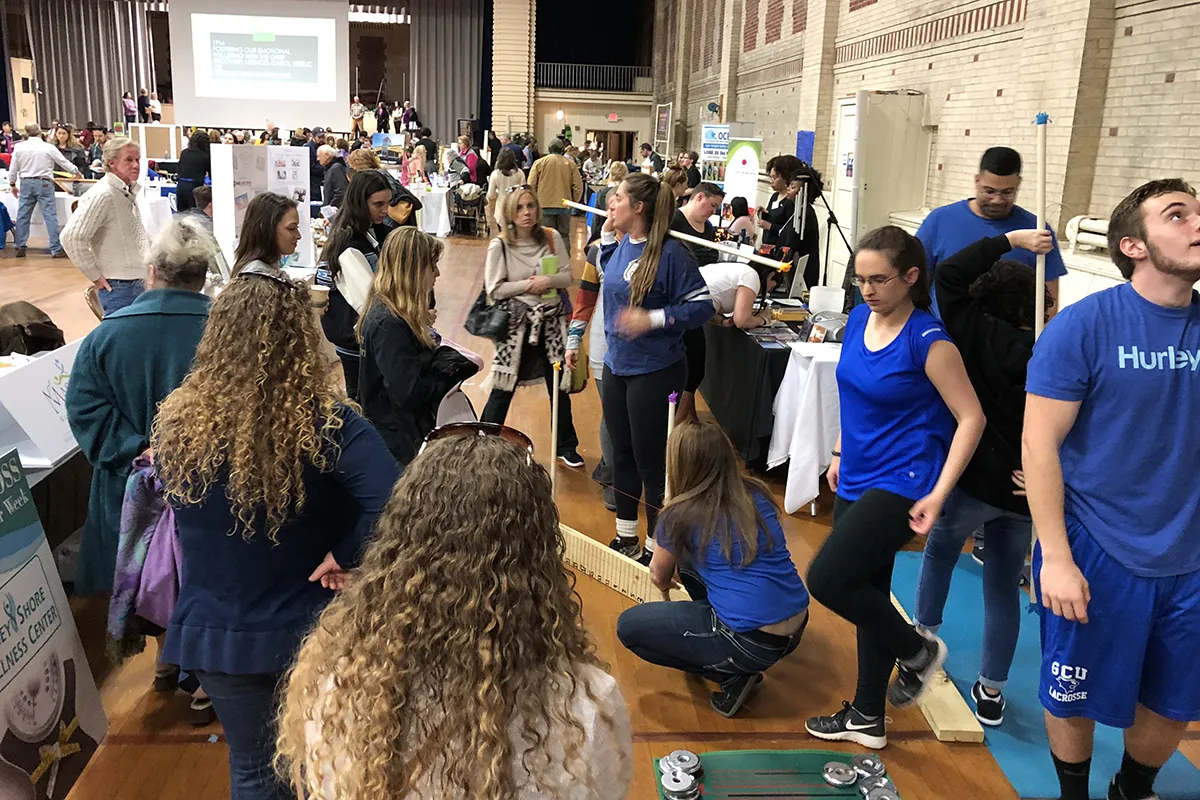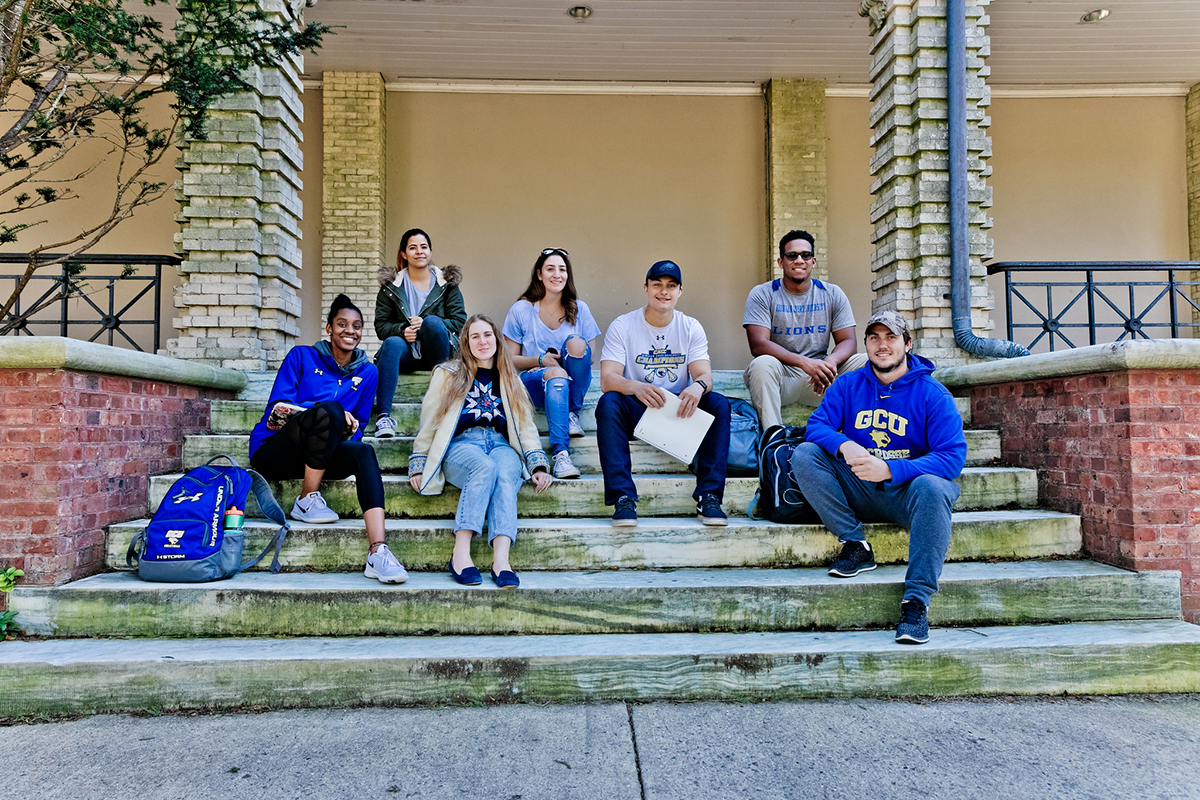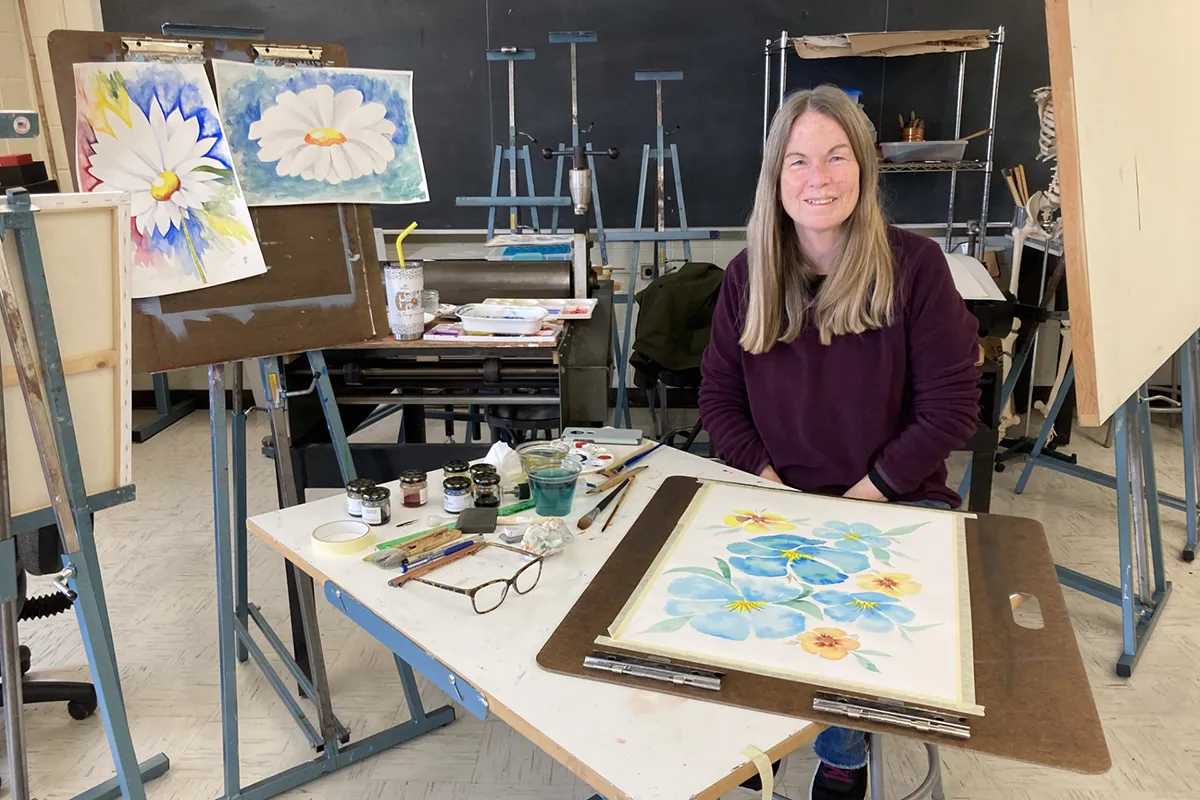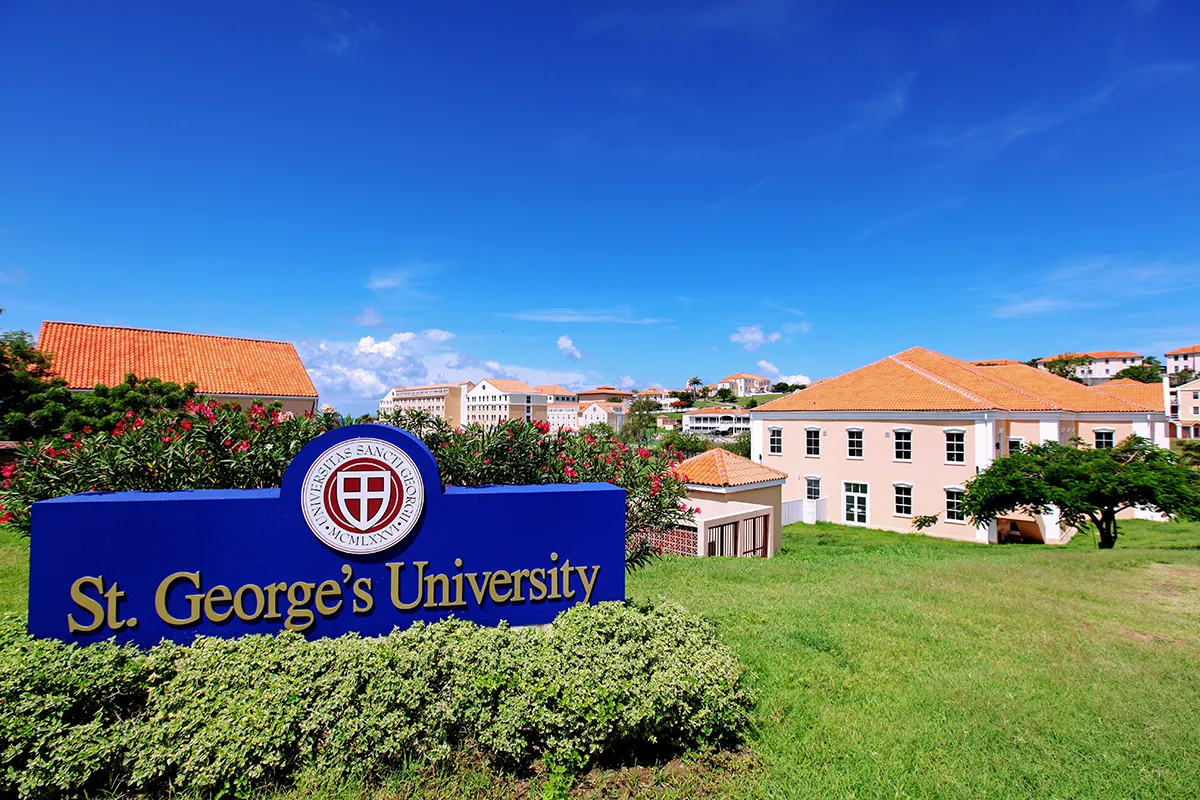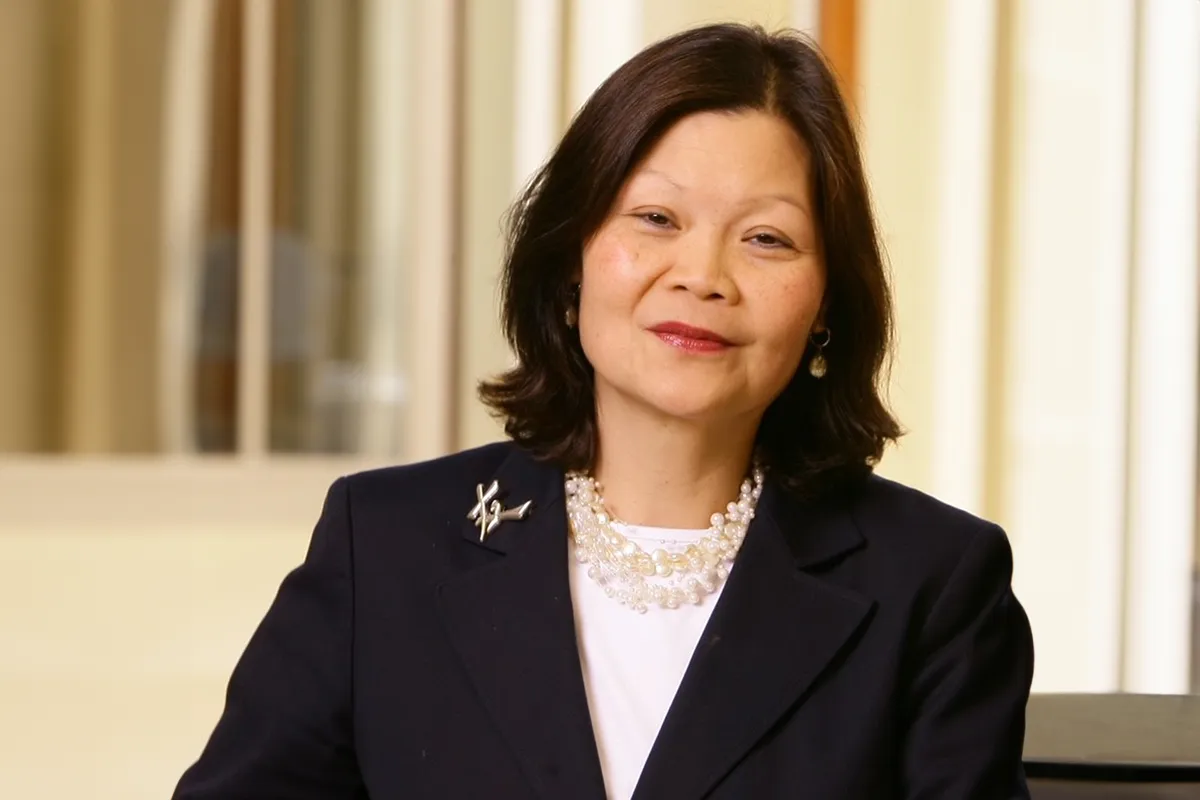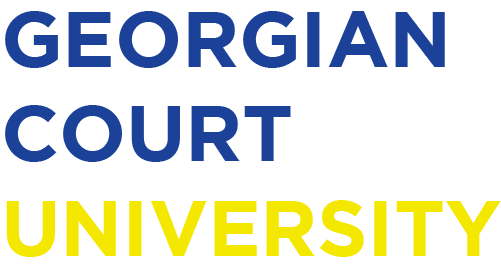“It’s safe to say that my time at Georgian Court, for many reasons, has changed my life.” -Brittany Scardigno
On Monday, January 9th, Georgian Court alum Brittany Scardigno headed to Seoul, South Korea for her 2023 Fulbright Program. As the recipient of an English Teaching Assistantship (ETA), Brittany will be teaching students in underserved communities and immersing herself in South Korean culture.
We sat down with Brittany to learn more about what she’ll be teaching and how her experience at Georgian Court helped to prepare her for the year abroad:
Let’s start from the beginning. What is the Fulbright Program?
The Fulbright Program is dedicated to promoting linguistic and cultural exchange on a global level. They achieve this by providing grant opportunities to college graduates who hold a bachelor’s degree, master’s degree, or doctorate. Recipients of these grants are then enabled to travel to countries around the world and foster learning through research and teaching.
Fulbright has several main types of scholarships. These include a research grant, in which the recipient conducts individual research in the country of their choice, and an English Teaching Assistantship, or ETA. I was selected as a recipient of the latter.
Can you tell us more about the English Teaching Assistantship?
The ETA grant provides quality English language education to under-represented, under-privileged, and under-developed areas of certain countries. Recipients of the grant are intended to adapt to various teaching environments, with or without resources we’re accustomed to having access to. As such, teachers must be flexible and truly dedicated to serving their students with any resources at their disposal.
In which country are you participating in the Fulbright Program?
I arrived in South Korea on Tuesday, January 10th, and will remain in the country for my Fulbright until Wednesday, December 20th.
Why did you choose South Korea as your target country?
I applied to teach in South Korea because my childhood best friends are from South Korea. My mom is a single mother, and as a child with a single parent, I inevitably spent a lot of time at my friends’ houses.
I grew up watching Korean television, eating Korean food, and being exposed to South Korean culture altogether. I wanted to travel to and teach in South Korea so that I could further immerse myself in the country’s culture and help support its residents in need of English proficiency.
Further, while I’m not bilingual, I’ve taught composition courses at the university level to ESL students, many of whom are bilingual and trilingual. These students have worked hard to learn about American culture, essentially starting their lives from scratch in America, and they’ve taught me what a dedicated person is capable of. These experiences inspired me to take a leap and immerse myself in another country’s culture to further help my own students.
What excites you about living in South Korea?
South Korea is home to amazing landscapes and delicious cuisine, among many other things. I’m excited for the experience, not only because of my past experiences with South Korean culture, but because this will be my first time outside of North America!
Where will you be staying in South Korea?
The only thing I know is that I won’t be in a major city. Fulbright almost exclusively places students in rural areas that lack the resources of metropolitan areas.
South Korea’s Fulbright program includes a six-week orientation hosted by Jungwon University, in which students take classes for six hours per day, five to six days per week. Between weeks five and six, I’ll be informed as to where I’ll be placed in the country for the remainder of the year.
Interestingly enough, most countries’ Fulbright orientation periods are 1-3 days. South Korea’s six-week orientation is one of the longest out of the 200+ countries that participate in the Fulbright Program.
What age group will you be teaching?
When applying for the Fulbright, you have the option of choosing between elementary and secondary education. Given that I don’t have any formal experience with teaching children, I thought it was best for me (and the students) to focus on secondary education, i.e. middle school or high school students.
Will you be allowed to leave?
When signing the Fulbright grant contract, you are legally bound to remain in the country throughout your entire stay, with the exception of an optional two-week vacation. Given the amount of time and resources involved in flying back from South Korea to the U.S. and back in a two-week stretch, I will likely remain in the country throughout the year.
Are you the first Georgian Court alum to participate in the Fulbright program?
Georgian Court has participated in the Fulbright Program for quite awhile now. For example, Professor Scott Bennett completed his faculty Fulbright in Holland, and Hannah Thrainsdottir, who graduated last year, received a Fulbright Fellowship for the 2022-2023 academic year. With that said, I believe I am the first student in Georgian Court’s English Department to participate in the Fulbright Program.
How has Georgian Court prepared you for this experience?
Before coming to Georgian Court, I hadn’t been to school in years. Once I turned 25, I had what a lot of millennials refer to as a “quarter-life crisis” and had the clear thought that I had to go back to school.
I came to Georgian Court as a transfer student through their “communiversity” program. I spent my junior and senior years on the university’s Hazlet campus, which served as a turning point in my life.
My time at Georgian Court was my first experience in going to school specifically for myself, not because I felt that others would want me to. GCU is where I fell in love with literature and the English language, thanks for the incredible lessons taught to me by Dr. Rader and Dr. McDonald. It’s where I decided that I wanted to become a teacher, go to graduate school, and teach college classes.
Can you tell us about some of the work you did at Georgian Court?
My senior seminar paper, which I penned for the university’s Academic Excellence Conference, inspired my master’s thesis. I carried the concept through my education and it now serves as my area of focus as a teacher.
The paper focused on the concept of silence and its role in society. Many of us have physical, mental, or otherwise intangible traumas that cannot be seen, and silence plays a significant role in allowing those traumas to thrive. I wrote on the impact that silence has on a person’s ability to heal themselves, be it physically or psychologically. I wrote my master’s thesis on the back of this senior seminar paper, ultimately exploring the concept of silence and unspoken trauma in literature.
It’s safe to say that my time at Georgian Court, for many reasons, has changed my life.

